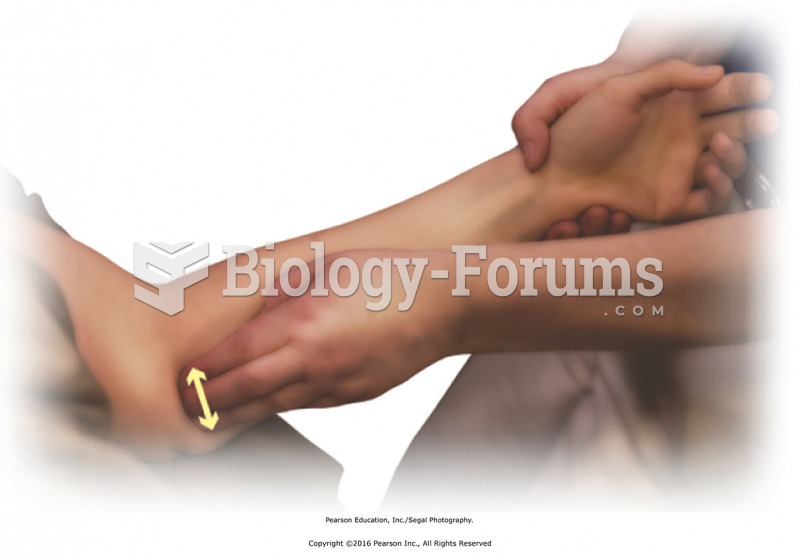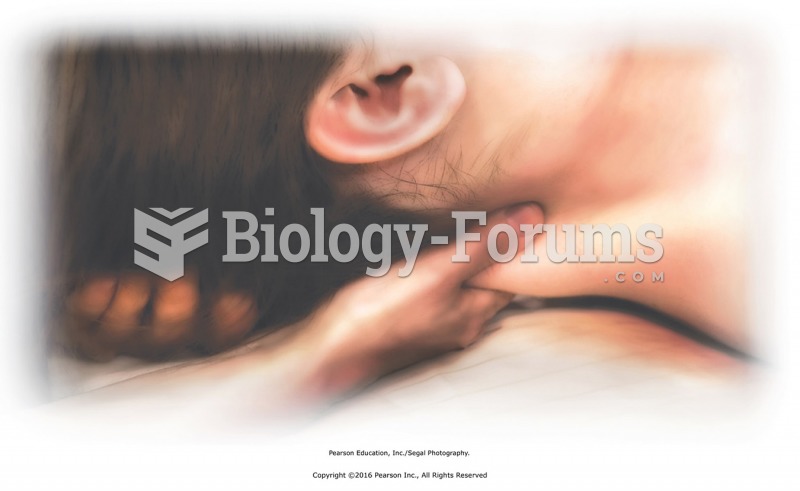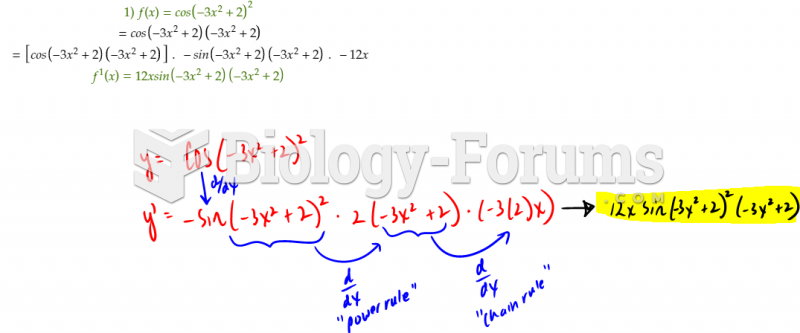|
|
|
The first-known contraceptive was crocodile dung, used in Egypt in 2000 BC. Condoms were also reportedly used, made of animal bladders or intestines.
Cytomegalovirus affects nearly the same amount of newborns every year as Down syndrome.
Immunoglobulin injections may give short-term protection against, or reduce severity of certain diseases. They help people who have an inherited problem making their own antibodies, or those who are having certain types of cancer treatments.
Asthma occurs in one in 11 children and in one in 12 adults. African Americans and Latinos have a higher risk for developing asthma than other groups.
In 1886, William Bates reported on the discovery of a substance produced by the adrenal gland that turned out to be epinephrine (adrenaline). In 1904, this drug was first artificially synthesized by Friedrich Stolz.
 Apply friction to tendons at the elbow with thumb or fingers. Add stripping effleurage along length ...
Apply friction to tendons at the elbow with thumb or fingers. Add stripping effleurage along length ...
 Rock the leg to create movement at the hip joint. Apply passive movements to mobilize knee and hip ...
Rock the leg to create movement at the hip joint. Apply passive movements to mobilize knee and hip ...





